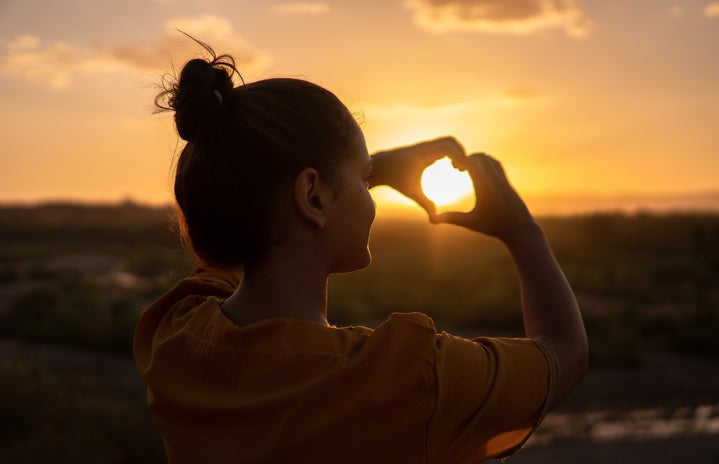Tears roll down my face as I beg the TSA agent to give me back my medications. I don’t even want to know how much money resides in that Ziploc bag that they’ve confiscated from me. Could I survive just an eight-hour plane ride without them? Are there even pharmacies in Madrid that could refill these medications?
Or maybe I’m sitting on the plane, eating peanuts and watching a rom-com when my heart kicks into high gear out of nowhere. I feel it pounding, vibrating through my whole body. I try to take deep breaths, I splash water on my face and I curl up in a ball in my seat—it doesn’t matter. Six hours left of this flight, and my heart is going 200 beats per minute.
I try to shake these thoughts out of my mind as I zip up another packing cube. I’d been dreaming of studying in Madrid since my freshman year, but I hadn’t realized how anxious it would make me. I’d been having bouts of supraventricular tachycardia (SVT) for the past two years, episodes of extremely high heart rate that sent me to the emergency room. I hadn’t had one in six months, but the thought of it happening in Madrid terrified me.
When the fateful day of departure came, everything was too hectic for me to worry anymore. There were too many other problems: making sure my checked bags made it to the next plane, getting through security in time and walking up and down the aisle to avoid blood clots. And once I got to Madrid, my days were booked. I didn’t have a second to breathe until I was on a three-hour bus ride for a school trip on the first weekend. We spent that day hiking through a park, navigating trails and even caves until we ended up behind a gorgeous waterfall. I shuffled closer to the ledge, careful not to slip and peered through the shimmering veil of water to see the vast, lush valleys and sparkling rivers below. I caught my breath and slowed my heart rate as I took in the view, feeling weightless above the Spanish countryside.
Unfortunately, the walk out of the park hit me like a ton of bricks. The cold of winter took my breath away, and the steep hills that were so easy to walk down became treacherous on the way back. My heart was pounding, and I would pause and put my hand on my chest, waiting for it to skip a beat and start hammering at an impossibly fast speed. The moment never came. Somehow, I made it out of the trenches back to the park entrance. My heart, flawed as it was, had gotten me through the day. It had gotten me to that viewpoint and even got me back on the bus by some miracle. I realized that I am always so fearful that my heart will falter that I forget to appreciate all the times it functions normally. With every beat, I have the opportunity to live my life, to enjoy the sun beaming on my skin, to feel the sprinkles of a frigid waterfall on my face.
After that day, my time abroad turned into limitless opportunities. I tried to refrain from having anxious thoughts and focused on the current moment instead. I savored the warm soups and comical conversations with my host family at dinner. I closed my eyes and felt myself drift, one with the freezing yet refreshing Mediterranean Sea. I took mental and physical pictures of picnics at the park with my friends, trying to freeze a moment of laughter or a card game that I was winning. I even found appreciation for the Metro and my comfortable routine that started and ended at the station every day.
Having a heart condition has given me a sense of mortality that, for most of my life, has been anxiety-inducing. Living in Madrid, however, made me realize that my heart condition makes me appreciate life in a way that most people never do. Every moment is a result of my surgeries, my medication, my doctors and my heart. You don’t have to have a giant scar down your chest or take ten medications a day to appreciate the fact that your heart is beating and your lungs are breathing in air. From beautiful moments in the waterfalls of Spain to mundane walks across campus, every second of our lives is a small miracle, the result of our organs working in perfect harmony. The least we can do is be grateful for every moment that we have.


